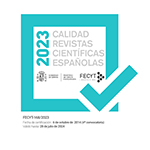Un nuevo equilibrio de bienestar
Resumen
From both a quantity and quality perspective, children occupy centre-stage in any welfare equilibrium. Very low fertility does not correspond to citizens’ desires and will, in the long haul, have dire societal consequences. Insufficient investment in the quality of our children will adversely affect their life chances as adults and will also harm our economic well-being. Children are a collective asset and the cost of having children is rising, in particular as women embrace the norm of life-long employment. The double challenge is to eliminate the constraints on having children in the first place, and to ensure that the children we have are ensured optimal opportunities. In the following I analyze the twin challenges of fertility and child development. I then examine which kind of policy mix will ensure both the socially desired level of fertility and investment in our children. The task is to identify a Paretian optimum that will ensure efficiency and social equity gains simultaneously.Descargas
Descarga artículo
Licencia
La revista Política y Sociedad, para fomentar el intercambio global del conocimiento, facilita el acceso sin restricciones a sus contenidos desde el momento de su publicación en la presente edición electrónica, y por eso es una revista de acceso abierto. Los originales publicados en esta revista son propiedad de la Universidad Complutense de Madrid y es obligatorio citar su procedencia en cualquier reproducción total o parcial. Todos los contenidos se distribuyen bajo una licencia de uso y distribución Creative Commons Reconocimiento 4.0 (CC BY 4.0). Esta circunstancia ha de hacerse constar expresamente de esta forma cuando sea necesario. Puede consultar la versión informativa y el texto legal de la licencia.











